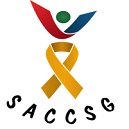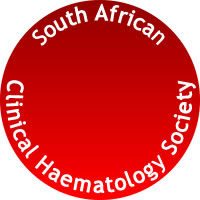Original Research
Biomarkers in breast cancer: Quantifying discordance with best practice when hormone receptor status is an extravagance
Submitted: 23 May 2020 | Published: 22 October 2020
About the author(s)
Melinda Mushonga, Department of Radiology, College of Health Sciences, University of Zimbabwe, Harare, ZimbabweNtokozo Ndlovu, Department of Radiology, College of Health Sciences, University of Zimbabwe, Harare, Zimbabwe
Anna M. Nyakabau, Department of Radiology, College of Health Sciences, University of Zimbabwe, Harare, Zimbabwe
Sandra Ndarukwa-Jambwa, Department of Radiology, College of Health Sciences, University of Zimbabwe, Harare, Zimbabwe
Zahra Kassam, Radiation Medicine Program, Stronach Regional Cancer Center, Newmarket, Canada
Webster Kadzatsa, Department of Radiology, College of Health Sciences, University of Zimbabwe, Harare, Zimbabwe
Zhihui Liu, Department of Biostatistics, Princess Margaret Cancer Centre, University Health Network, Toronto, Canada; and, Dalla Lana School of Public Health, University of Toronto, Toronto, Canada
Rebecca K.S. Wong, Radiation Medicine Program, Princess Margaret Cancer Center, Toronto, Canada; and, Department of Radiation Oncology, University of Toronto, Toronto, Canada; and, Institute Health Policy Management and Evaluation, University of Toronto, Toronto, Canada
Abstract
Background: In Zimbabwe, the hormone receptor status is not always available when patients with breast cancer are started on treatment.
Aim: This study evaluated the discordance of treatment approach in such patients, with National Comprehensive Cancer Network (NCCN) guideline recommendations as the reference standard when these results are eventually available.
Setting: Female patients who presented to the Parirenyatwa Central Hospital Radiotherapy and Oncology Centre with a histological diagnosis of breast cancer, managed between 1 January 2014 and 31 December 2016.
Methods: Patients with breast cancer having unknown receptor status at diagnosis, and the hormone receptor status were subsequently available either clinically or the tissues were available for study-specific analysis, were eligible for the study. The level of agreement between treatments received and the NCCN recommendations if the receptor status was known was tested using Kappa statistic.
Results: Patients in stage I–III received treatment that were in strong agreement with the use of chemotherapy, and endocrine treatments with agreement scores of 1 (95% CI 0.91–1) and 0.81 (95% CI 0.65–0.95), respectively; but moderate agreement with regard to the choice of chemotherapy regimen, with a score of 0.5 (95% CI 0.32–0.68). There was a median delay of 8 (range 3–27) months for the availability of receptor status. Of the 38 stage IV patients, 33 (87%) were recommended chemotherapy. Of the 38 patients, 25 (66%) had hormone driven disease. There was somewhat agreement for use of chemotherapy, choice of chemotherapy regimen and use of endocrine treatments as initial choice with agreement scores of 0.53 (95% CI 0.36,0.69), 0.18 (95% CI 0.07, 0.35) and 0.68 (95% CI 0.51,0.82) respectively.
Conclusion: Treatment approaches were largely in agreement with the NCCN guidelines for patients in stage I–III. Discordance was noted in stage IV patients with under-utilisation of hormone therapy as the initial treatment when the receptor status was unknown.
Keywords
Metrics
Total abstract views: 3856Total article views: 4322
Crossref Citations
1. Assessment of Breast Cancer Management in Sub-Saharan Africa
Verna Vanderpuye, Mary-Ann Dadzie, Dezheng Huo, Olufumilayo I. Olopade
JCO Global Oncology issue: 7 first page: 1593 year: 2021
doi: 10.1200/GO.21.00282



